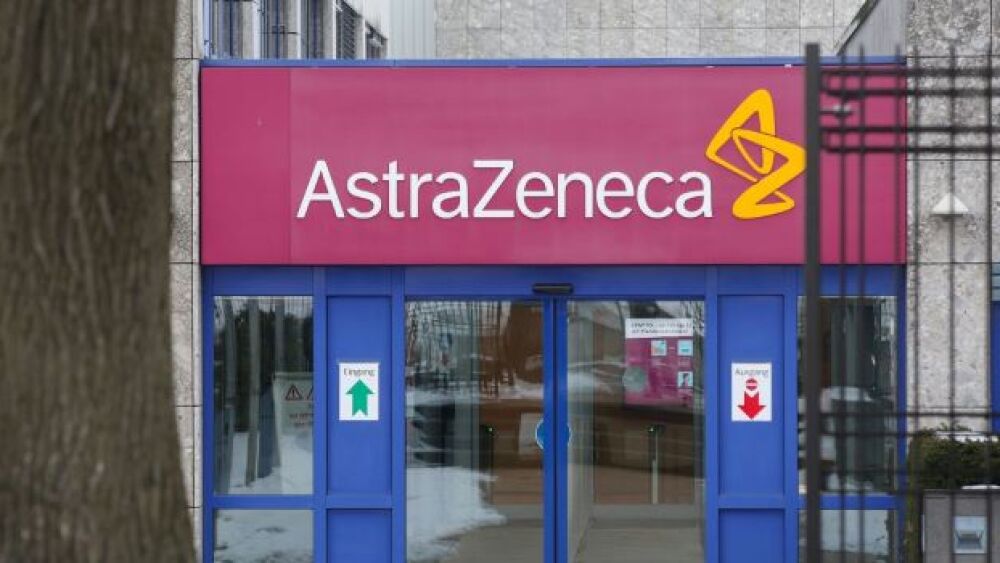Innate Pharma announced that a planned futility interim analysis of the INTERLINK-1 Phase III trial sponsored by AstraZeneca failed to hit a pre-defined threshold for efficacy.
Bodo Marks/picture alliance via Getty Images
Monday morning, Innate Pharma announced that a planned futility interim analysis of the INTERLINK-1 Phase III trial sponsored by AstraZeneca failed to hit a pre-defined threshold for efficacy. This follows AstraZeneca’s Q2 report released on July 29 that included several other drugs and trials the company is axing.
Based on the data and recommendation of an Independent Data Monitoring Committee, the INTERLINK-1 trial will be discontinued. The study was of monalizumab, a potentially first-in-class immune checkpoint inhibitor targeting NKG2A receptors expressed on CD8+ T cells and NK cells. It was evaluating monalizumab in combination with cetuximab versus cetuximab alone in recurrent or metastatic squamous cell carcinoma of the head and neck (R/M SCCHN) patients who have been previously treated with platinum-based chemotherapy and PD-(L)1 inhibitors. It is also being evaluated in the PACIFIC-9 study with durvalumab, an anti-PD-L1 inhibitor or with AstraZeneca’s anti-CD73 drug oleclumab in non-small cell lung cancer (NSCLC).
In its Q2 report, AstraZeneca reported it is axing several programs in its pipeline. Notably, it is abandoning a cardiovascular drug it partnered with Moderna on that was in Phase II. The drug candidate, AZD8601, was an mRNA therapy that encoded vascular endothelial growth factor (VEGF-A).
A Phase II trial hit the primary endpoint of safety and tolerability at the end of 2021. The EPICURE study injected the drug directly into the myocardium of patients receiving elective coronary artery bypass surgery (CABG). Of 11 patients, seven received the drug, and four received placebo. Trends were seen in three exploratory efficacy endpoints: left ventricular ejection fraction (LVEF); NT-proBNP, and functional patient-reported outcomes.
At the time, Mene Pangalos, Ph.D., executive vice president, BioPharmaceuticals R&D for AstraZeneca, said, “Over one billion heart cells can be lost during a heart attack. These early results indicate the potential of mRNA therapeutics in stimulating VEGF-A production to provide reparative and disease-modifying options for patients with heart failure and other ischaemic vascular diseases.”
AstraZeneca also halted work on a drug it acquired the rights to from Merck in 2013 for $50 million upfront. This Wee1 inhibitor, adavosertib, was also in Phase II. The drug was being developed for ovarian cancer, solid tumors and uterine serous cancer, as well as in combination with Imfinzi.
In the Q2 report, Soriot said, “Given the ongoing performance of our underlying business and the contribution of our COVID-19 medicines, we are updating our revenue guidance for 2022. This has enabled us to increase our R&D investment in the exciting number of pipeline opportunities that can benefit patients and drive long-term sustainable growth for our company. We look forward to announcing the results of several important late-stage trials this year and next.”
Aside from program cuts, AstraZeneca reported very strong revenue growth for its second-quarter report, citing $10.630 billion, an increase of 32%. The company noted that the growth originated from all disease areas and the addition of rare drug company Alexion. One of the puzzles is the drop in sales in its Evusheld antibody treatment for COVID-19, which has been shown to be effective against variants. The sales dropped from $469 million in the first quarter to $445 million in the second.
AstraZeneca reported a whopping 48% increase in revenue to $22.161 billion for the year’s first half.
For the half-year, Vaxzevria brought in $1.540 billion, an increase of 36%, citing $451 million for the quarter, an actual drop of 48%.
Evusheld brought in $556 million in the U.S. in the first half of this year, and the U.S. government offered to acquire 1.7 million doses for $855 million. In the conference call, Soriot said, “We need to get full approval in the U.S. to be able to fully promote it. It’s fundamental to be able to establish the product.”
In the call, the company’s executive vice president for vaccines and immune therapies, Iskra Reic, noted, “It is really important to make sure that we do our best to educate and increase the awareness for both patients and (doctors). Our investment is increasing and we want to resource that in the proper way to make sure we drive demand.”
The company’s oncology sales rose 14% for the half to $7.089 billion, with $3.701 billion for the quarter, also 14%. The big driver was Tagrisso, which brought in $2.704 billion, a 10% increase, although Calquence, which brought in $903 million, grew 84% for the half.
Rare Disease increased 5% for the half to $3.495 billion. The Vaccines and Immune Therapies area brought in a total of $2.734 billion for the half, with most of that coming from Vaxzevria and Evusheld, although Synagis brought in $280 million.





